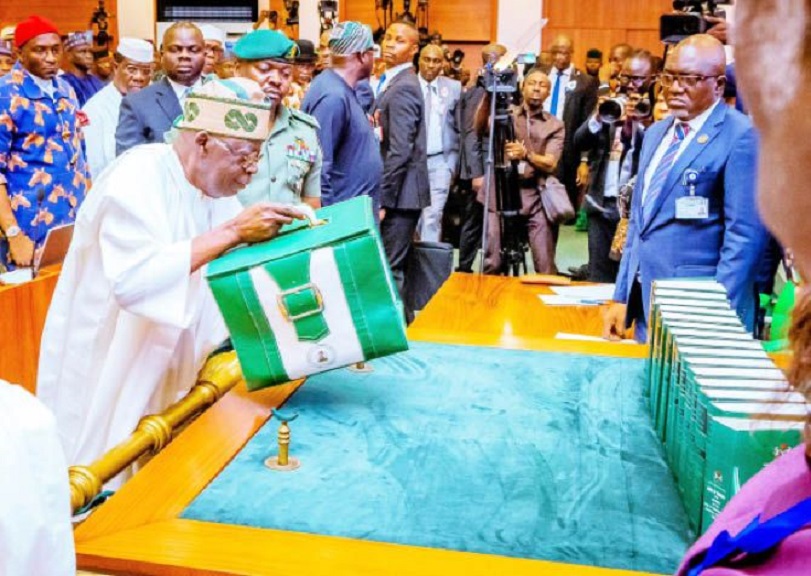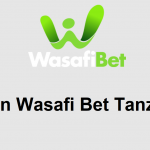Economy
T-Bills Yields Finish 2018 at 15.26% after N154b OMO Sale

By Dipo Olowookere
The average treasury bills yields at the secondary market close on Monday, December 31, 2018, at 15.26 percent after three tenors recorded losses and two maturities appreciated.
Business Post reports that yields on the one-month, 3-montha and 6-month tenors depreciated by 0.03 percent, 0.46 percent and 0.04 percent respectively to settle at 14.91 percent, 14.04 percent and 13.41 percent apiece.
However, the 9-month and 12-month maturities grew by 0.03 percent each to finish at 16.58 percent and 17.34 percent respectively.
It was observed that at the market on Monday, transactions were scanty as some market players sold off slightly in a bid to shore up their year-end cash positions in the wake of the N154 billion OMO sale by the Central Bank of Nigeria (CBN).
During the exercise, the apex bank sold N24 million worth of the 94-day bills at 11.90 percent, N1.67 billion worth of the 185-day paper at 13.50 percent, N16.92 billion worth of the 346-day note at 15.00 percent and N135.19 billion worth of the 346-day special bill at 15.00 percent.
According to analysts at Zedcrest Research, yields are expected to remain high going into the New Year, as the CBN is expected to maintain its current spate of OMO issuances.
“We however expect slight moderation on the shorter end of the curve, as market players would look to cherry-pick on some attractive maturities in the New Year,” it said.
Meanwhile, rates in the money market remained slightly pressured with the OBB and OVN rates inching higher to close at 19.00 percent and 20.17 percent respectively.
This came on the back of the continued OMO and wholesale FX interventions by the CBN, even as market players sought to bolster their year-end cash positions.
System liquidity is estimated to close the year in negative territory of N500 billion given the OMO and FX debits by the CBN in the previous and current session.
The rates are expected to remain elevated due to the relatively tighter level of system liquidity and with the CBN expected maintain its current spate of OMO issuances in the New Year.
Economy
Lekki Deep Sea Port Reaches 50% Designed Operational Capacity

By Adedapo Adesanya
The Managing Director of Lekki Port LFTZ Enterprise Limited, Mr Wang Qiang, says the port has reached half of its designed operational capacity, with steady growth in container throughput since September 2025, reflecting increasing confidence by shipping lines and cargo owners in Nigeria’s first deep seaport.
“We already reached 50 per cent of our capacity now, almost 50 per cent of the port capacity.
“There is consistent improvement in the number of 20ft equivalent units (TEUs) handled monthly,” he said.
Mr Qiang explained further that efficient multimodal connectivity remains critical to sustaining and accelerating growth at the port.
According to him, barge operations have become an important evacuation channel and currently account for about 10 per cent of cargo movement from the port.
Mr Qiang mentioned that the ongoing Lagos–Calabar Coastal Road project would help ease congestion and improve access to the port.
He said that rail connectivity remained essential, particularly given the scale of industrial activities emerging within the Lekki corridor.
He said that Nigeria Government was concerned about the cargoes moving through rail and that the development would enhance more cargoes distribution outside the port.
Mr Qiang reiterated that Lekki port was a fully automated terminal, noting that delays may persist until all stakeholders, including government agencies, fully aligned with end-to-end digital processes.
He explained that customs procedures, particularly physical cargo examinations, and other port services should be fully digitalised to significantly reduce cargo dwell time.
“We must work together very closely with customers and all categories of operations for automation to yield results.
“Integration between the customs system, the terminal operating system and customers is already part of an agreed implementation schedule.
“For automation to work efficiently, all players must be ready — customers, government and every stakeholder. Only then can we have a fantastic system,” Mr Qiang said.
He also stressed that improved connectivity would allow the port to effectively double capacity through performance optimisation without expanding its physical footprint.
Economy
Investors Reaffirm Strong Confidence in Legend Internet With N10bn CP Oversubscription

By Aduragbemi Omiyale
The series 1 of the N10 billion Commercial Paper (CP) issuance of Legend Internet Plc recorded an oversubscription of 19.7 per cent from investors.
This reaffirmed the strong confidence in the company’s financial stability and growth trajectory.
The exercise is a critical component of Legend Internet’s N10 billion multi-layered financing programme, designed to support its medium- to long-term growth.
Proceeds are expected to be used for broadband infrastructure expansion to deepen nationwide penetration, optimise the organisation’s working capital for operational efficiency, strategic acquisitions that will strengthen its market position and accelerate service innovation.
The telecommunications firm sees the acceptance of the debt instruments as a response to its performance, credit profile, and disciplined operational structure, noting it also reflects continued trust in its ability to execute on its strategic vision for nationwide digital infrastructure expansion.
“The strong investor participation in our Series 1 Commercial Paper issuance is both encouraging and validating. It demonstrates the market’s belief in our financial integrity, operational strength, and long-term vision for digital infrastructure growth. This support fuels our commitment to building a more connected, competitive, and digitally enabled Nigeria.
“This milestone is not just a financing event; it is a strategic enabler of our expansion plans, working capital needs, and future acquisitions. We extend our sincere appreciation to our investors, advisers, and market partners whose confidence continues to propel Legend Internet forward,” the chief executive of Legend Internet, Ms Aisha Abdulaziz, commented.
Also commenting, the Chief Financial Officer of Legend Internet, Mr Chris Pitan, said, “This achievement is powered by our disciplined financing framework, which enables us to scale sustainably, innovate continuously, and consistently meet the evolving needs of our customers.
“We remain committed to building a future where every connection drives opportunity, productivity, and growth for communities across Nigeria.”
Economy
Tinubu to Present 2026 Budget to National Assembly Friday

By Adedapo Adesanya
President Bola Tinubu will, on Friday, present the 2026 Appropriation Bill to a joint session of the National Assembly.
The presentation, scheduled for 2:00 pm, was conveyed in a notice issued on Wednesday by the Office of the Clerk to the National Assembly.
According to the notice, all accredited persons are required to be at their duty posts by 11:00 am on the day of the presentation, as access into the National Assembly Complex will be restricted thereafter for security reasons.
The notice, signed by the Secretary, Human Resources and Staff Development, Mr Essien Eyo Essien, on behalf of the Clerk to the National Assembly, urged all concerned to ensure strict compliance with the arrangements ahead of the President’s budget presentation.
The 2026 budget is projected at N54.4 trillion, according to the approved 2026–2028 Medium-Term Expenditure Framework (MTEF) and Fiscal Strategy Paper (FSP).
Meanwhile, President Tinubu has asked the National Assembly to repeal and re-enact the 2024 appropriation act in separate letters to the Senate and the House of Representatives on Wednesday and read during plenary by the presiding officers.
The bill was titled Appropriation (Repeal and Re-enactment Bill 2) 2024, involving a total proposed expenditure of N43.56 trillion.
In a letter dated December 16, 2025, the President said the bill seeks authorisation for the issuance of a total sum of N43.56 trillion from the Consolidated Revenue Fund of the Federation for the year ending December 31, 2025.
A breakdown of the proposed expenditure shows N1.74 trillion for statutory transfers, N8.27 trillion for debt service, N11.27 trillion for recurrent (non-debt) expenditure, and N22.28 trillion for capital expenditure and development fund contributions.
The President said the proposed legislation is aimed at ending the practice of running multiple budgets concurrently, while ensuring reasonable – indeed unprecedentedly high – capital performance rates on the 2024 and 2025 capital budgets.
He explained that the bill also provides a transparent and constitutionally grounded framework for consolidating and appropriating critical and time-sensitive expenditures undertaken in response to emergency situations, national security concerns, and other urgent needs.
President Tinubu added that the bill strengthens fiscal discipline and accountability by mandating that funds be released strictly for purposes approved by the National Assembly, restricting virement without prior legislative approval, and setting conditions for corrigenda in cases of genuine implementation errors.
The bill, which passed first and second reading in the House of Representatives, has been referred to the Committee on Appropriations for further legislative action.
-

 Feature/OPED6 years ago
Feature/OPED6 years agoDavos was Different this year
-
Travel/Tourism9 years ago
Lagos Seals Western Lodge Hotel In Ikorodu
-

 Showbiz3 years ago
Showbiz3 years agoEstranged Lover Releases Videos of Empress Njamah Bathing
-

 Banking7 years ago
Banking7 years agoSort Codes of GTBank Branches in Nigeria
-

 Economy3 years ago
Economy3 years agoSubsidy Removal: CNG at N130 Per Litre Cheaper Than Petrol—IPMAN
-

 Banking3 years ago
Banking3 years agoFirst Bank Announces Planned Downtime
-

 Banking3 years ago
Banking3 years agoSort Codes of UBA Branches in Nigeria
-

 Sports3 years ago
Sports3 years agoHighest Paid Nigerian Footballer – How Much Do Nigerian Footballers Earn













